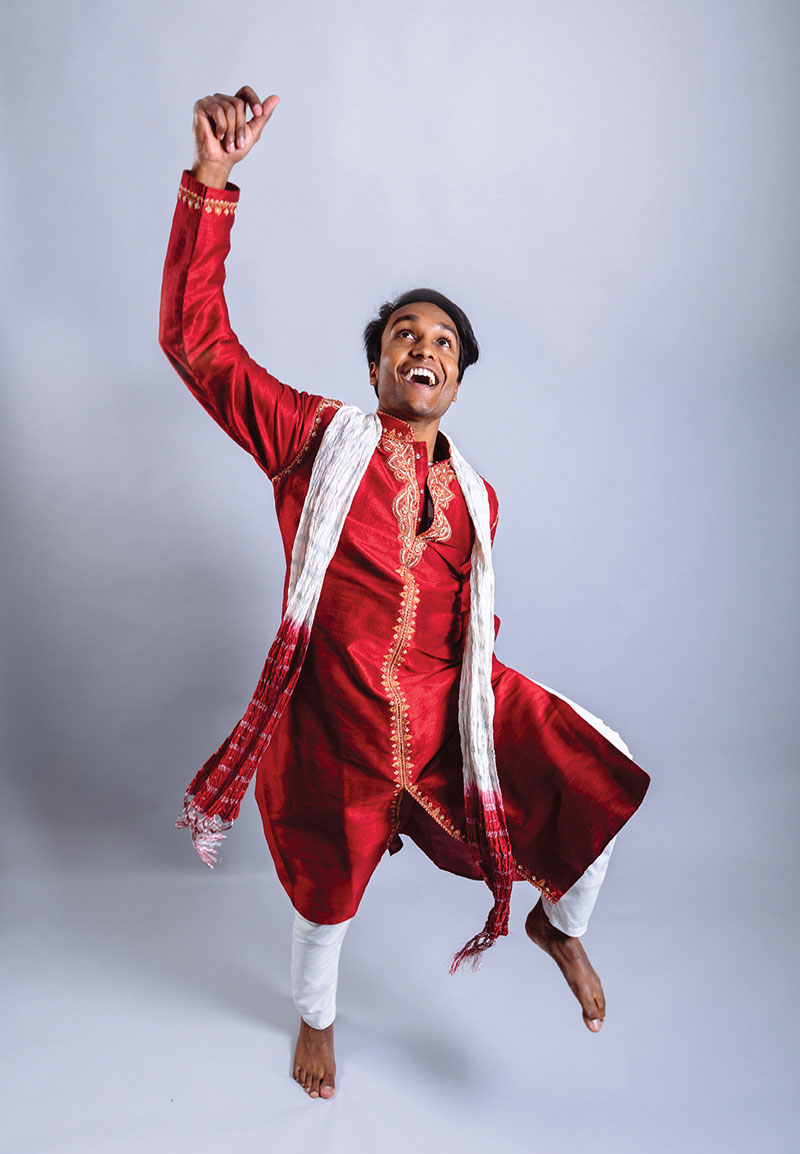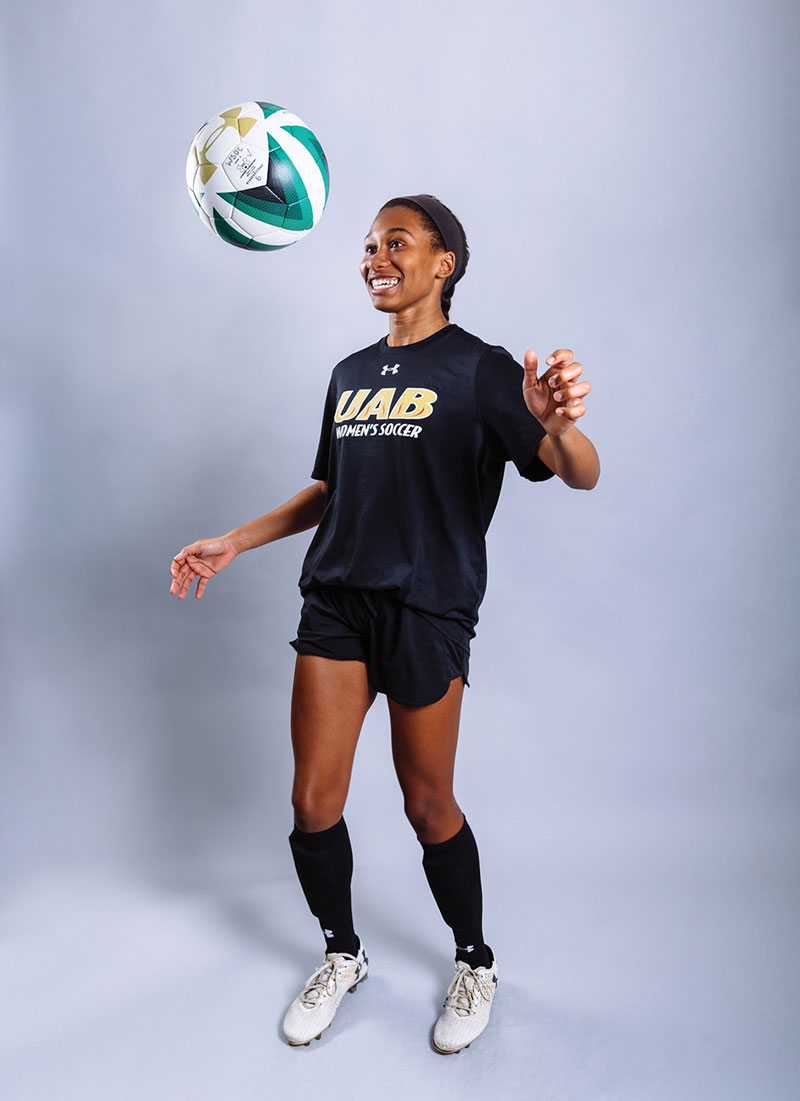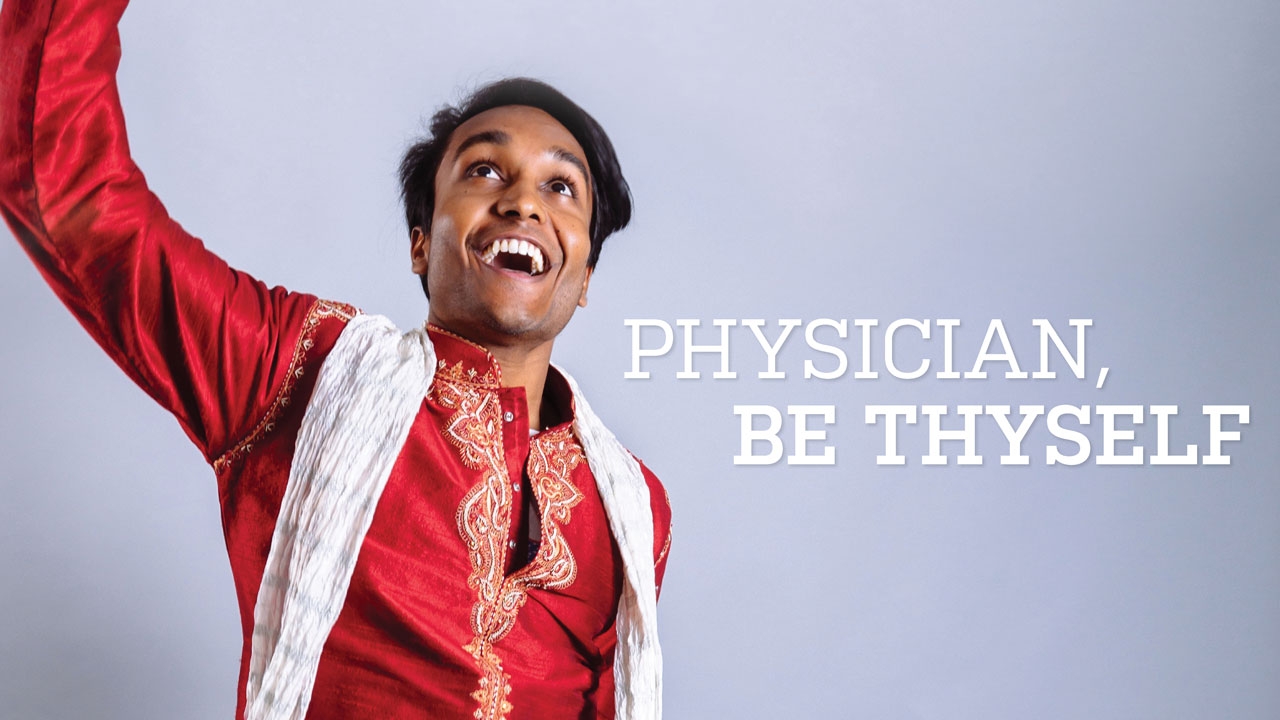The most influential moment of Siddhu Srikakolapu’s medical career might be the day he joined a competitive Bollywood fusion dance team. Or perhaps it is the first time he heard about UAB’s Early Medical School Acceptance Program (EMSAP).
 Siddhu Srikakolapu
Siddhu SrikakolapuUndergraduates who qualify for EMSAP arrive at UAB with the knowledge that upon graduation, their admission is assured to UAB’s renowned School of Medicine, School of Dentistry, or School of Optometry. So while they still do plenty of health-related coursework and research over four years, EMSAP students also have the flexibility to branch out into other fields such as humanities and social sciences, both inside and outside the classroom.
“Since I don’t have to worry about crafting myself into the perfect medical-school applicant, I can focus on other things I enjoy,” says Srikakolapu, a senior from Madison, Alabama, majoring in philosophy. “Instead of taking all science classes, I’ve taken courses like behavioral economics, ethics, beginning acting. I can have a diverse curriculum.”
That is how Srikakolapu found himself on the Bollywood dance team. To prepare for one performance, the UAB student group, which uses dance to draw attention to social issues, talked with members of Birmingham’s homeless population. Hearing their stories made Srikakolapu realize that developing strategies to improve health care is as important as practicing medicine.
“Interacting with the homeless community has inspired me to go into health policy so that I can create institutional change to help people,” Srikakolapu says. “EMSAP has given me an opportunity to discover things I never would have discovered otherwise.”
Exercising minds
EMSAP’s academic freedom doesn’t mean the students coast through college, however. Members attend rigorous seminars focusing on complex health-related topics, from bioethics to reproductive biology. “The seminars have given me a better understanding of how the world works,” says Audria Wood, a junior from Gadsden, Alabama. “I can easily translate them into my other courses, in terms of how people function in society. They have given me a better understanding of how I can have an impact through medicine.”
EMSAP students also can shadow UAB physicians in the medical center, and many work in UAB’s clinical research laboratories. Srikakolapu, for example, assisted UAB psychology professor Edward Taub, Ph.D., on a groundbreaking rehabilitation therapy to help patients improve movement after stroke, multiple sclerosis, or traumatic brain injury. Students also can compete in the Intercollegiate Ethics Bowl—UAB won the 2010 national championship and placed second in 2019—and the national Bioethics Bowl, which UAB won in 2011, 2015, and 2019. More than 300 students have entered EMSAP since the program’s founding in 1988, and many alumni have become leaders in medicine, dentistry, and optometry across the country. The program has produced two Rhodes Scholars.
 Audria Wood
Audria Wood“Doing well in medical school is like running a marathon. You have to be in shape,” says EMSAP director Gregory Pence, Ph.D. A philosophy professor in the UAB College of Arts and Sciences, Pence has been involved with the program since the mid-1990s. “EMSAP helps students stay in shape with their thinking,” he says. “We want them to have big ideas.” Encouraging students to pursue their passions—from learning a foreign language to volunteering with local charities—diversifies their knowledge and experience, which helps them make the connections leading to those big ideas.
Soccer and ceramics
Wood, who wants to pursue a career in surgery, says she chose UAB because “it’s the place to go” in Alabama “if you want to do anything pre-med.” But EMSAP’s freedom and flexibility also appealed to her.
Which is a good thing, because in addition to majoring in biology, Wood is a defender on the Blazer women’s soccer team. “I enjoy that EMSAP recognizes that we’re seeking an entire life,” she says. “We have an overarching idea that medicine is what we want to do, but we’re allowed to be individuals with different interests. There’s no cookie-cutter outline of what we’re supposed to be.
“I jokingly asked Dr. Pence one time about taking a ceramics class,” Wood recalls. “He said that was perfect, because it shows that I’m good with my hands.”
Srikakolapu agrees. He chose UAB over Yale University in part because of UAB’s student diversity and EMSAP’s “focus on things that will help us grow,” he says. “When patients meet with doctors, they want someone who is a good person whom they can talk to. Ultimately, all these experiences will help us become well-rounded, personable physicians.”
Partner in discovery
“EMSAP is an individualized path,” Wood says. But she emphasizes that students never feel alone on their unique journeys toward their health-care goals. “We can meet with Dr. Pence as many times as we need to go over what we want to do in the future and discuss how we can better prepare ourselves,” she explains. “Having someone to answer questions and support us is a big part of the program. It’s a lot different from doing it by ourselves.”


